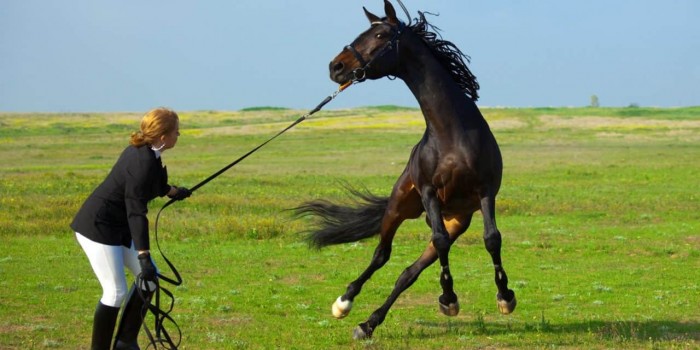
Poker Face: Horses during stressful handling
To safeguard animal welfare it is important to correctly interpret stress. However, individual horses may react differently to a threat or challenge both behaviourally as well as physiologically. Evidence suggests that behaviour does not accurately reflect affective states in horses. Individual differences have been identified. The aim of this study was to assess whether behaviour during two tests was associated with physiological indicators of stress.
In the study core temperature, discrepancy in eye temperature and heart rate variability were measured. These measures were compared with compliance and proactivity shown by the 46 horses during two novel handling tests. In test A horses crossed a large blue tarp on the ground. In test B horses had to walk through plastic streamers hanging overhead.
Indicators of stress did not correlate with the time to take a test. This suggests that some horses crossed objects they found aversive. The level of proactivity shown by horses was not associated with heart rate variability, heart rate, core temperature or the discrepancy in eye temperature. Which suggests that proactive horses, that appear more stressed, are showing similar stress responses to reactive horses.
Expert opinion by Anouk van Breukelen
The results indicate that behavioural indicators to stress may not be a reliable indicator to a horse’s ability to tolerate stressful procedures. Further studies can analyse if training influences emotional responses during stressful situations in horses.
> From: Squibb, Applied Animal Behaviour Science 202 (2018) 34-38. All rights reserved to Elsevier B.V.. Click here for the online summary.


